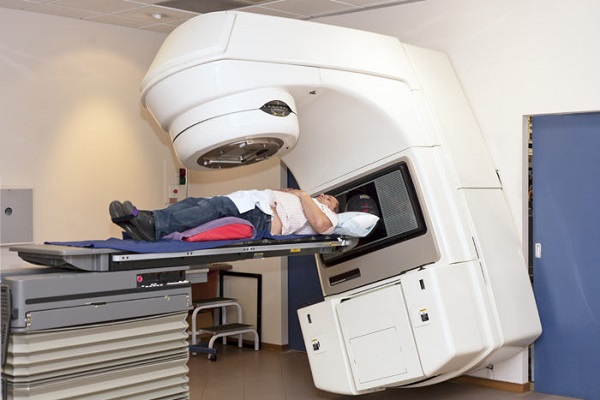
Nigerians have been assured by a radiation oncologist that proton therapy leads to a significantly lower risk of side effects severe enough to lead to unplanned hospitalisation for cancer patients reduces the risk.
Dr. Sapna Nangia of the Apollo Proton Cancer Centre (APCC), Chennai, gave the assurance while speaking with newsmen after an educative meeting on the advanced cancer treatment option, themed “Proton Therapy for improving outcomes of cancer treatment and quality of survivorship”, in Abuja.
The APCC is the first and only proton therapy centre in South Asia, the Middle East and India’s first JCI accredited Cancer Hospital, Chennai, India. It specialises in providing a wide range of services for cancer sufferers and patients.
Proton therapy is a radiation therapy that uses tiny particles called ‘protons’. It can be effective in treating many types of tumours, including those of the brain, head and neck, central nervous system, lung, prostate and gastrointestinal systems.
Proton therapy is often the preferred option for treating solid tumours in children because the protons can be controlled precisely so there is less radiation from normal tissues, helping prevent serious complications and lessening the chance of secondary tumours.
She said that the successful-focused therapy for cancer, the Proton Beam Therapy, has been used in treating complicated cases with the uttermost precision and successful personal experiences for over 50 years.
“This is exciting because it shows that proton therapy offers a way for us to reduce the serious side effects of chemo-radiation and improve patient health and wellbeing without sacrificing the effectiveness of the therapy.
“Apollo Proton Cancer Centre has a fully integrated treatment suite that offers the most advanced treatment in surgical, radiation and medical procedures. Apollo brings together a powerful team of clinicians renowned globally in cancer care. With a strong approach to treating cancer, APCC has an experienced multi-disciplinary team of highly skilled clinicians focused on delivering the best possible outcomes for their patients with utmost care.
“At the bedrock of APCC’s approach to treating cancer, is its robust multi-disciplinary platform; highly skilled professionals who come together to form a cancer management team (CMT). Each CMT is focused on delivering the best possible outcomes for their patients. An added feather in the cap is the recent launch of India’s first and only site-specific Robotic Oncology Programme.
“True to the Apollo pillars of expertise and excellence, Proton Beam Therapy with focused and trained cancer management teams provides optimal solutions to treat cancer. Apollo Proton Cancer Centre has been successfully treating cancer patients from all over the world through the most advanced new-age technology.
“Proton therapy is a radiation therapy that uses tiny particles called protons as excellent cancer cell killers. Protons deliver their energy but do not damage healthy tissue in comparison to photon therapy.
“Therefore, a higher dose of radiation can be targeted at the tumour without affecting many normal healthy cells. Proton therapy can be effective in treating tumours of the brain, head and neck, central nervous system, lung, prostate, and gastrointestinal system.
“Proton therapy is often the preferred option for treating solid tumours in children because protons can be controlled precisely so there is less radiation to normal tissues, help prevent serious complications and lessen the chance of secondary tumours.
“Proton Therapy has multiple advantages that target tumours and cancer cells with precision and minimal exit dose thus reducing overall toxicity. It also reduces the probability and/or severity of short-and long-term side effects on surrounding healthy tissues and organs. It is favourable in treating recurrent tumours, even in patients who have already received radiation.
“Proton Therapy has emerged as an excellent treatment modality for several cancers and one of the most common sites being treated at the Apollo Proton Cancer Centre is cancers of the head and neck.
“Patients undergoing Proton Therapy have significantly less discomfort during and after treatment and are less likely to require hospital admission, tube feeding, or treatment interruption.
“In patients with tumours involving the skull base, Protons improve the safety of critical organs like the visual pathway and the brain stem. At Apollo Proton Cancer Centre, we have the latest PBS technology which enables us to deliver highly focused treatments to each tumour, and each tumour is treated with protons, spot- by-spot and layer-by-layer. It has been proven to be successful in curing or controlling many cancers when used appropriately.”
On his part, a public health expert and publisher of Talkhealth9ja, Dr. Laz Eze, emphasised the relevance of the centre’s role as the most reliable centre for cancer treatment. He lamented that many Nigerians have suffered the brunt of poor and wrong diagnoses.
Eze stated that older patients can also receive proton therapy, “the most effective combined treatment. The treatment offers patients unparalleled precision in treating cancer”.
According to data from the Global Cancer Registry, annually, Nigeria records 119,000 new cancer cases diagnosed in health facilities, with a five-year prevalence of 217,000 cases.
Out of the annual 119,000 cases, 71,000 cases are females and 44, 000 cases are males.
Among the female cases – 23,000-plus cases are breast cancer – this makes the problem of Nigeria’s cancer burden this big.

